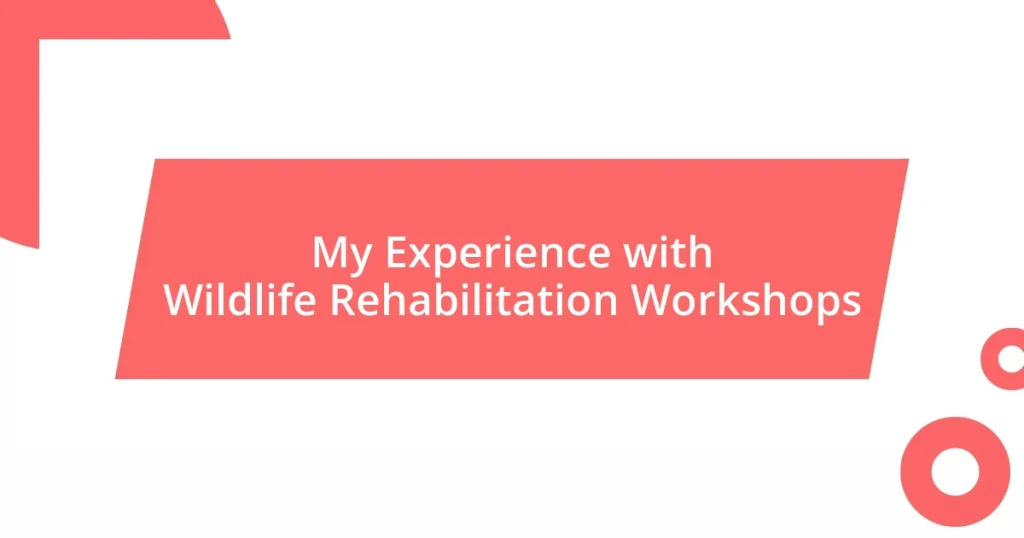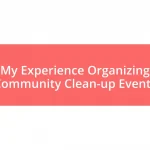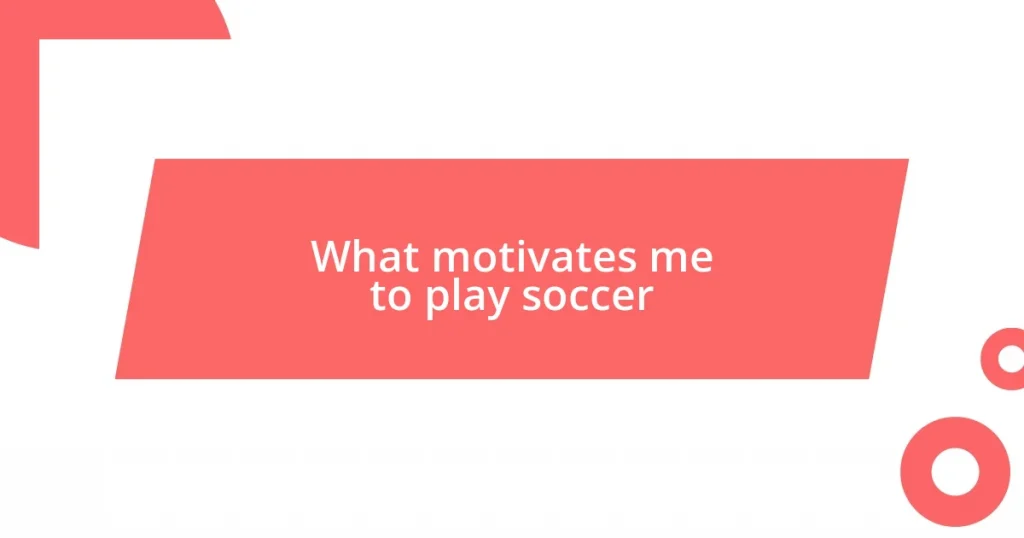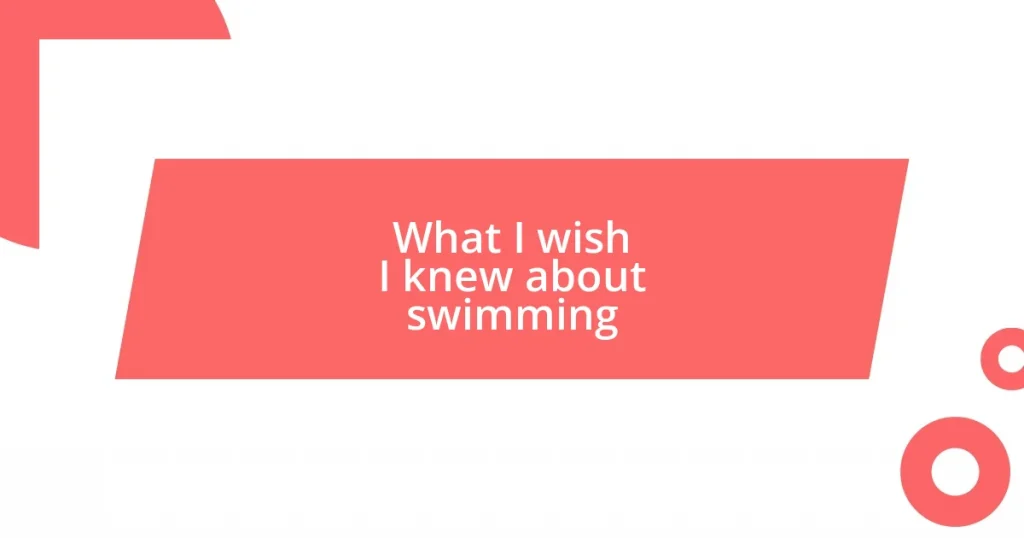Key takeaways:
- Wildlife rehabilitation workshops provide emotional connections and hands-on experiences that foster a deep respect and understanding of animal care and conservation.
- Participants gain practical skills through expert guidance, networking opportunities, and collaborative activities that enhance their wildlife rehabilitation capabilities.
- Challenges faced during training, such as emotional resilience and time management, are critical learning experiences that shape effective wildlife caregivers.
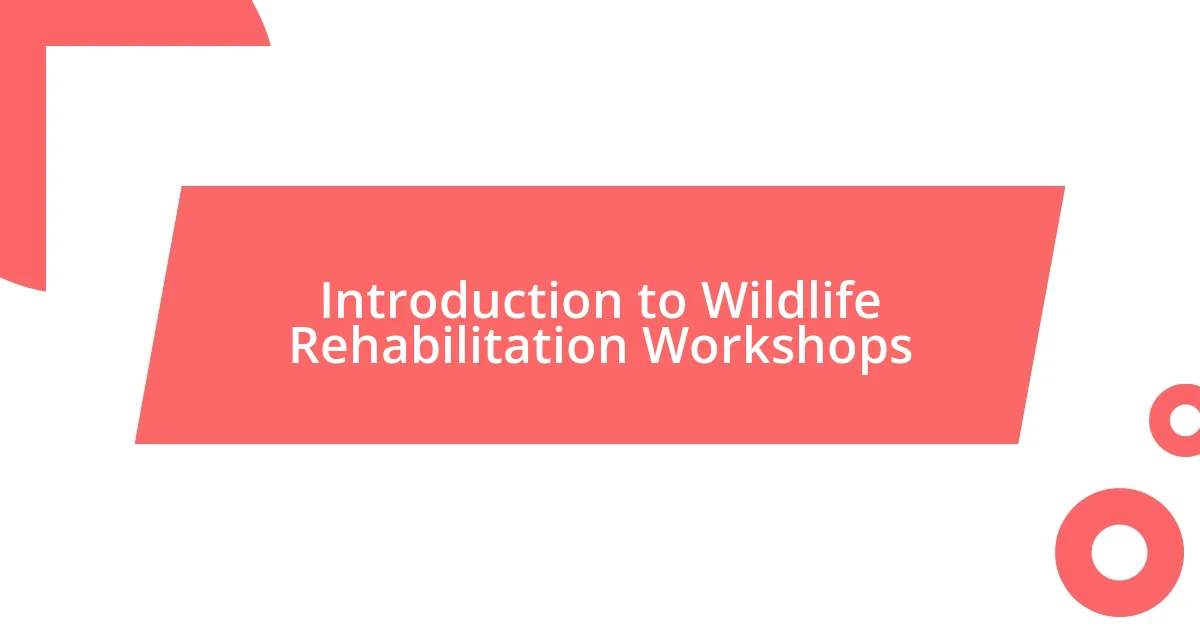
Introduction to Wildlife Rehabilitation Workshops
Wildlife rehabilitation workshops are immersive experiences that bridge the gap between passion and practical skills. I remember my first workshop vividly; the moment I met an injured hawk, I felt a surge of responsibility. How could I not help in its recovery? These workshops not only teach you about caring for animals but also instill a profound respect for nature’s intricate balance.
When you participate in these workshops, you engage with seasoned professionals who share invaluable insights and hands-on techniques. I still recall the excitement of learning to feed a young fawn; the connection I felt with this fragile creature was overwhelming. Have you ever held a life in your hands and felt that urge to protect it? That’s the kind of powerful moment these workshops create.
Attending a wildlife rehabilitation workshop transforms your perspective on wildlife conservation. It’s not just about saving individual animals; it’s about understanding ecosystems and the challenges they face. I’ve learned that each animal is a piece of a larger puzzle, and every effort counts in making a difference. Isn’t it rewarding to think that we can play a part in restoring the wild?
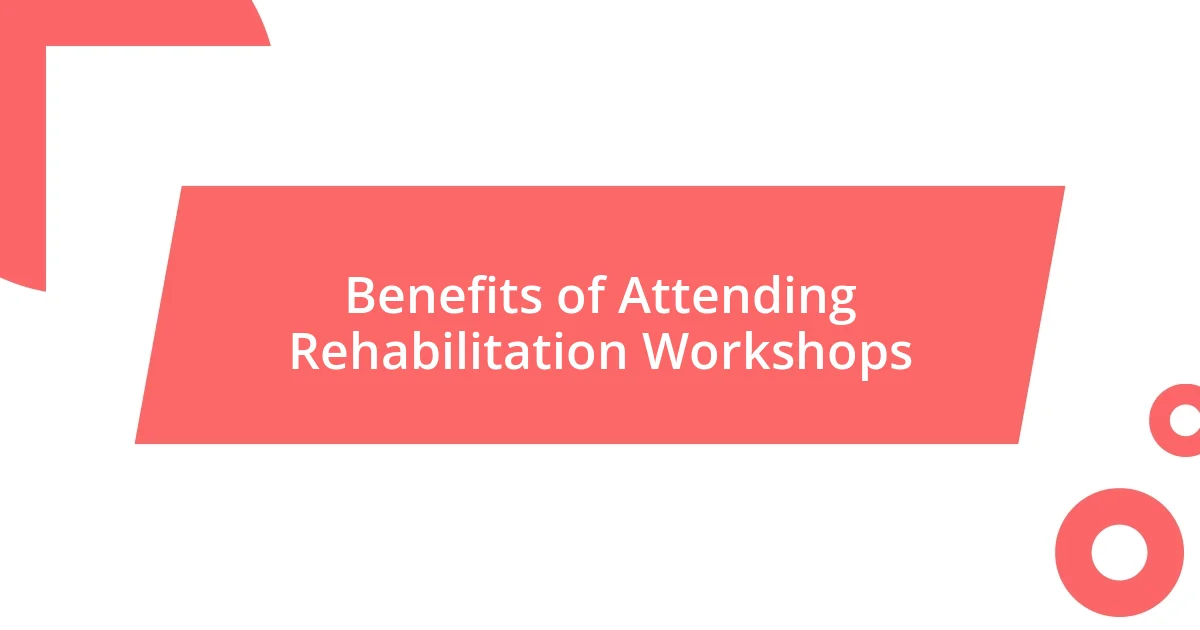
Benefits of Attending Rehabilitation Workshops
Participating in wildlife rehabilitation workshops can be incredibly rewarding, providing not just an opportunity to learn but also a chance to form deep connections. I distinctly remember my first encounter with a rehabilitated squirrel; seeing it scamper off back into the trees filled me with an indescribable joy. Has there ever been a moment when you felt so connected to an animal that it changed your outlook on life? Workshops like these foster that bond, igniting a passion for animal welfare.
Another significant benefit is the networking opportunities available at these workshops. You meet like-minded individuals who share your enthusiasm for wildlife care, creating a supportive community. During one workshop, I made friends who still collaborate with me on local conservation initiatives. That sense of camaraderie can be invaluable, as it often leads to lifelong friendships and collaborations that extend beyond the classroom.
Lastly, these workshops equip you with practical skills that are essential for effective wildlife rehabilitation. I recall the hands-on experience of practicing first aid on a plush animal during a training session, which was both educational and engaging. Do you ever wonder how professionals manage emergencies in the wild? These workshops provide you with the tools and confidence needed to navigate those challenging moments.
| Benefits | Highlights |
|---|---|
| Emotional Connection | Fosters deep bonds with wildlife and personal fulfillment. |
| Networking | Connects with like-minded individuals and establishes a supportive community. |
| Practical Skills | Provides hands-on experience, equipping attendees with essential rehabilitation techniques. |
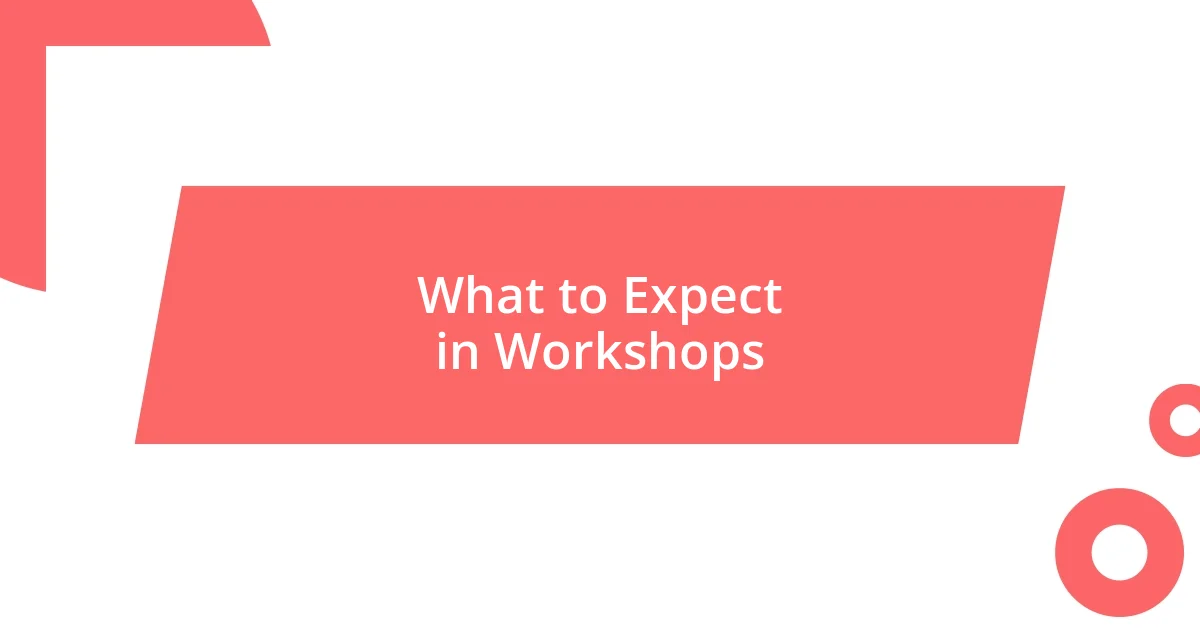
What to Expect in Workshops
When you step into a wildlife rehabilitation workshop, prepare for a whirlwind of emotions and learning experiences. The first session I attended involved getting up close with various injured animals. I still remember that sinking feeling in my stomach when I held a tiny, trembling rabbit. It was a moment of realization; I was now part of its healing journey. Each workshop typically includes a blend of lectures, hands-on activities, and discussions that facilitate a deeper understanding of wildlife care.
Here’s a snapshot of what you can expect during these workshops:
- Expert Guidance: Interactions with wildlife rehabilitation specialists who provide practical knowledge and share personal stories.
- Hands-On Experience: Opportunities to practice skills like feeding, cleaning, and offering medical attention to animals.
- Group Discussions: Engaging conversations about the challenges and ethical considerations in wildlife rehabilitation.
- Field Trips: Visits to rehabilitation centers or reserves, enhancing real-world understanding of care protocols.
- Emotional Support: A welcoming environment where participants can express their feelings about wildlife and conservation.
These components not only enrich your experience but also create a supportive community where everyone is united by their passion for making a difference.
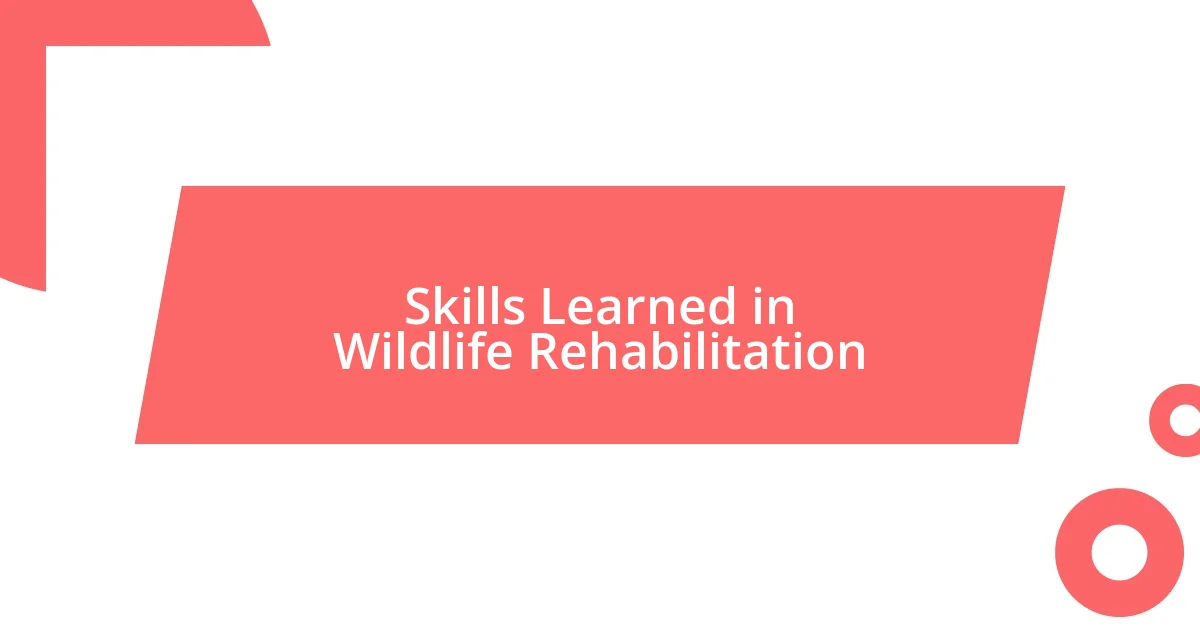
Skills Learned in Wildlife Rehabilitation
I learned a variety of practical skills during my time in wildlife rehabilitation workshops. For instance, I vividly remember the first time I practiced bandaging a bird’s wing. The delicate nature of the task required patience and precision, and I couldn’t help but feel a sense of responsibility for that little creature. Have you ever felt the weight of a life resting in your hands? It was a humbling experience that honed my attention to detail.
In addition to practical skills, these workshops taught me vital information about animal behavior and first aid protocols. Understanding how animals react to stress has been essential in my ability to provide care. I still recall an instance where calming an injured hawk with gentle words and movements significantly improved its treatment process. Isn’t it fascinating how communication transcends species? These insights have transformed my approach to wildlife care, teaching me that empathy plays a crucial role in rehabilitation.
Moreover, the collaboration aspect of these workshops cannot be overstated. I found myself engaged in lively, hands-on activities with fellow participants, each eager to share their own ideas and experiences. Together, we tackled various case studies, creating treatment plans for different injured wildlife scenarios. I often think about how these collaborative exercises not only refined my skills but also built lasting friendships centered around our common passion. Have you ever joined a group that sparked an incredible journey of learning and connection? That’s what these workshops are genuinely all about.
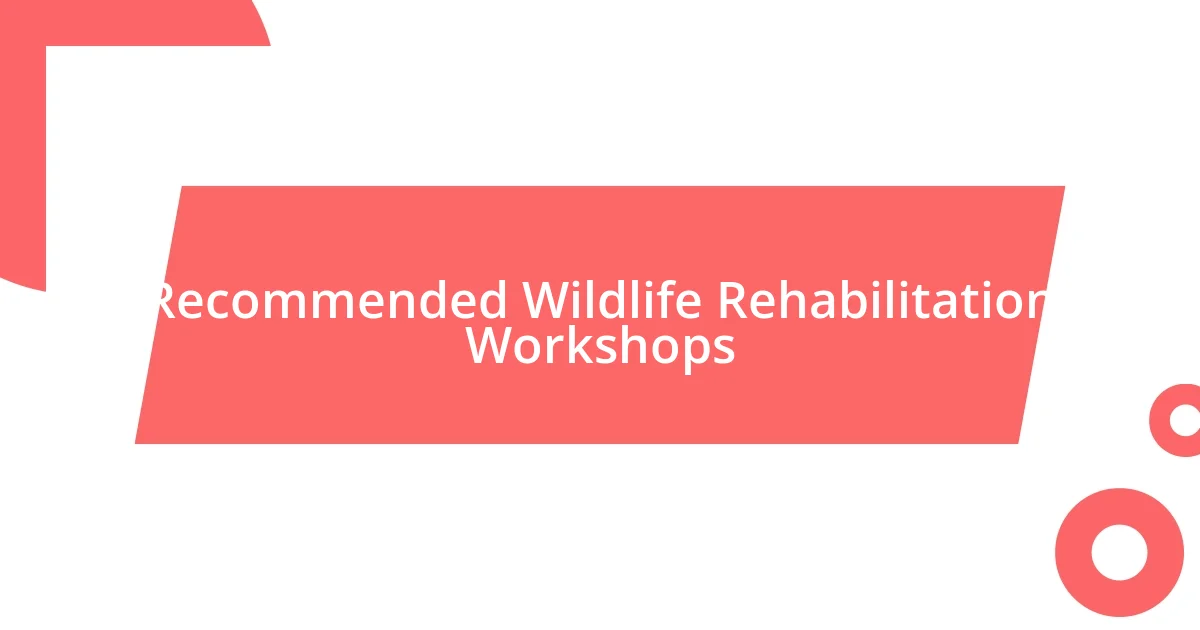
Recommended Wildlife Rehabilitation Workshops
When considering wildlife rehabilitation workshops, I can’t help but highly recommend the one I attended at a local rescue organization. The palpable excitement when we first arrived was electric, as we were greeted by not just the trainers but also some rescued animals ready to make an impression. I still fondly recall how a playful raccoon stole the show, reminding us all of the importance of compassion in our work. Has a small creature ever made you reflect on the bigger picture? It certainly did for me.
In addition to that memorable experience, I suggest looking into workshops that offer specialized tracks. For example, I participated in a series that focused exclusively on bird rehabilitation. The experts taught us about species-specific care, especially the challenges involved in nursing injured birds back to health. I remember feeling like a detective, piecing together clues from each bird’s behavior and injuries. Doesn’t it feel rewarding to solve a mystery that could save a life?
Lastly, consider workshops structured around community outreach, like the one I joined where we helped design educational programs for local schools. There’s something deeply fulfilling about sharing knowledge with the next generation, knowing that you’re planting seeds of awareness in young minds. I cherish the memories of watching kids’ eyes light up when they held a feather or learned about the crucial role of each animal in our ecosystem. What could be more heartwarming than inspiring future stewards of wildlife?
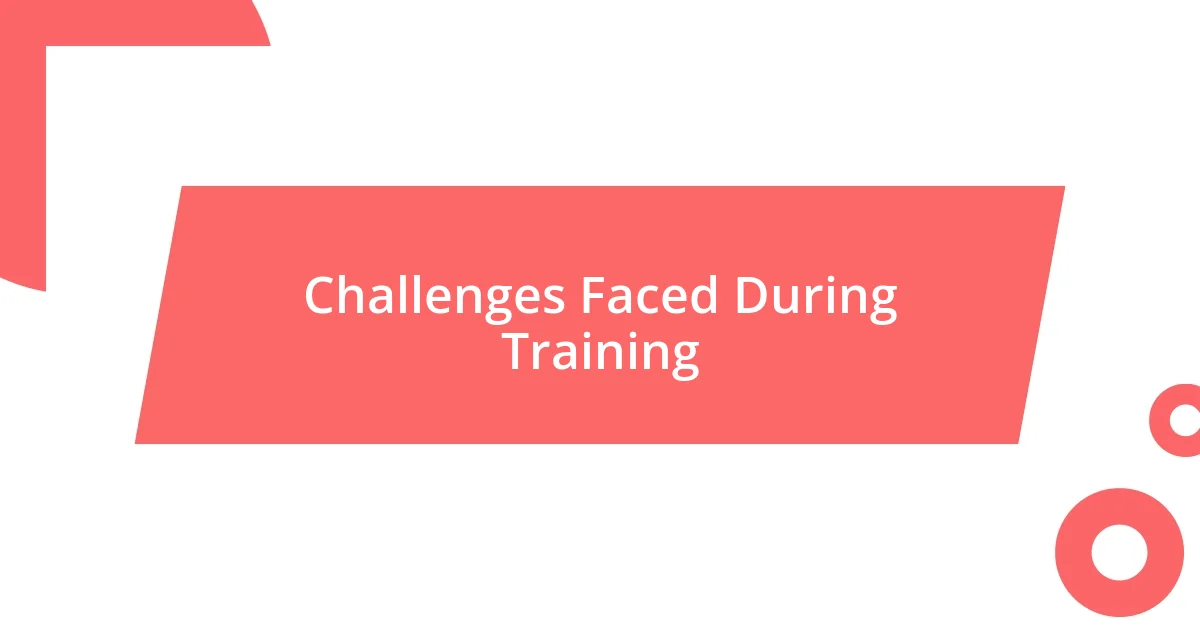
Challenges Faced During Training
During my wildlife rehabilitation training, I faced various challenges that tested my resolve. One moment that stands out was when I struggled to medicate a frightened squirrel. It darted around the room, and despite my best efforts, I felt utterly helpless. That taught me the importance of patience; sometimes, it’s about allowing the animal to settle before you can help it. Have you ever been in a situation where you had to step back to eventually move forward?
Another hurdle I encountered was the emotional toll of witnessing suffering animals. There was a day when we cared for a young deer with a broken leg, and my heart sank seeing its gentle eyes filled with fear. I learned that building emotional resilience is just as crucial as the technical skills we practiced. How can you effectively care for others when your heart feels heavy? This experience reminded me that self-care is essential in this line of work; finding ways to process these emotions through discussions with peers became a lifeline.
Time management was yet another challenge during training. Balancing the intense hands-on work with classroom learning required focus and organization. I remember racing against the clock while trying to complete a rehabilitation plan for an injured owl; I missed out on one detail that haunted me afterwards. Have you ever felt the pressure of time racing against your desire to do well? I learned that preparation and prioritization are key to success in wildlife rehab, and maintaining an organized approach is invaluable for providing the best care possible.
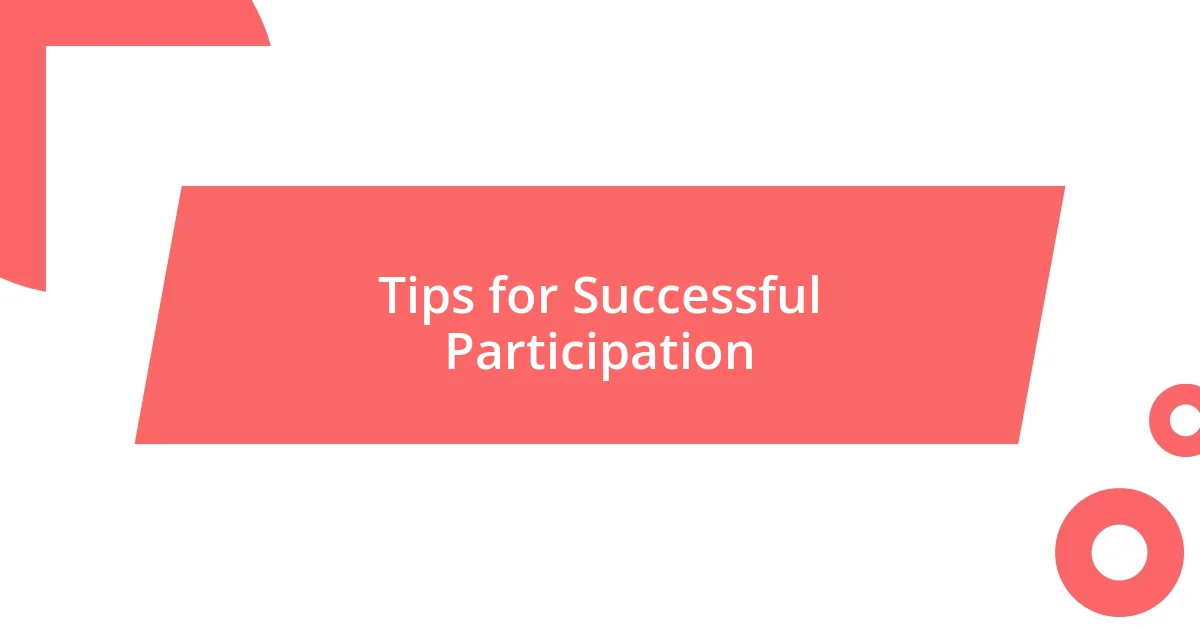
Tips for Successful Participation
Participating in wildlife rehabilitation workshops can be incredibly rewarding, but to make the most of it, maintaining an open mind is crucial. I recall my first workshop, where I sat back, absorbing every word, and letting go of any preconceived notions I had about animal care. Have you ever realized how much learning can happen when you simply listen? This approach allowed me to soak in new techniques and perspectives, enriching my experience immensely.
Engaging actively with both trainers and fellow participants also played a significant role in my success. During one session, I remember sharing my ideas during group discussions, sparking conversations that led to deeper insights and collaborative problem-solving. Isn’t it fascinating how exchanging thoughts might ignite creative solutions? Building connections within these workshops creates a supportive network that will benefit you beyond the training environment.
Don’t hesitate to ask questions, no matter how trivial they may seem. I vividly remember feeling hesitant about raising my hand during a particularly intense discussion about animal behavior. It turns out, my question led to an enlightening dialogue that clarified several misconceptions not just for me, but for the group. How often do we allow our uncertainties to prevent us from seeking clarity? By voicing your thoughts, you not only bolster your own understanding but also contribute to a richer learning environment for everyone.










